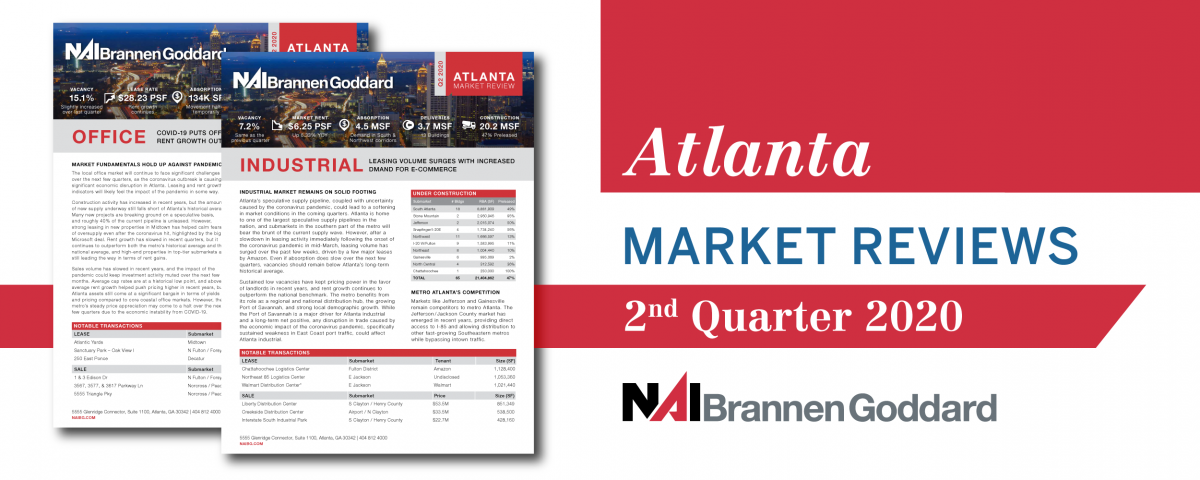
David Beak and Mark Sheffield Facilitate $13.7M Sale of North Park Business Center
April 21, 2020
Mike Berens and Logan Haner Represent Oversight Systems in Move to Pennant Park
October 6, 2020Atlanta Office & Industrial Market Reviews: Q2 2020

SECOND QUARTER, 2020
The local office market will continue to face significant challenges over the next few quarters, as the coronavirus outbreak is causing significant economic disruption in Atlanta. Leasing and rent growth indicators will likely feel the impact of the pandemic in some way.
Construction activity has increased in recent years, but the amount of new supply underway still falls short of Atlanta’s historical average. Many new projects are breaking ground on a speculative basis, and roughly 40% of the current pipeline is unleased. However, strong leasing in new properties in Midtown has helped calm fears of oversupply even after the coronavirus hit, highlighted by the big Microsoft deal. Rent growth has slowed in recent quarters, but it continues to outperform both the metro’s historical average and the national average, and high-end properties in top-tier submarkets are still leading the way in terms of rent gains.
Sales volume has slowed in recent years, and the impact of the pandemic could keep investment activity muted over the next few months. Average cap rates are at a historical low point, and above-average rent growth helped push pricing higher in recent years, but Atlanta assets still come at a significant bargain in terms of yields and pricing compared to core coastal office markets. However, the metro’s steady price appreciation may come to a halt over the next few quarters due to the economic instability from COVID-19. (See full review)
Atlanta’s speculative supply pipeline, coupled with uncertainty caused by the coronavirus pandemic, could lead to a softening in market conditions in the coming quarters. Atlanta is home to one of the largest speculative supply pipelines in the nation, and submarkets in the southern part of the metro will bear the brunt of the current supply wave. However, after a slowdown in leasing activity immediately following the onset of the coronavirus pandemic in mid-March, leasing volume has surged over the past few weeks, driven by a few major leases by Amazon. Even if absorption does slow over the next few quarters, vacancies should remain below Atlanta’s long-term historical average.
Sustained low vacancies have kept pricing power in the favor of landlords in recent years, and rent growth continues to outperform the national benchmark. The metro benefits from its role as a regional and national distribution hub, the growing Port of Savannah, and strong local demographic growth. While the Port of Savannah is a major driver for Atlanta industrial and a long-term net positive, any disruption in trade caused by the economic impact of the coronavirus pandemic, specifically sustained weakness in East Coast port traffic, could affect Atlanta industrial. (See full review)
